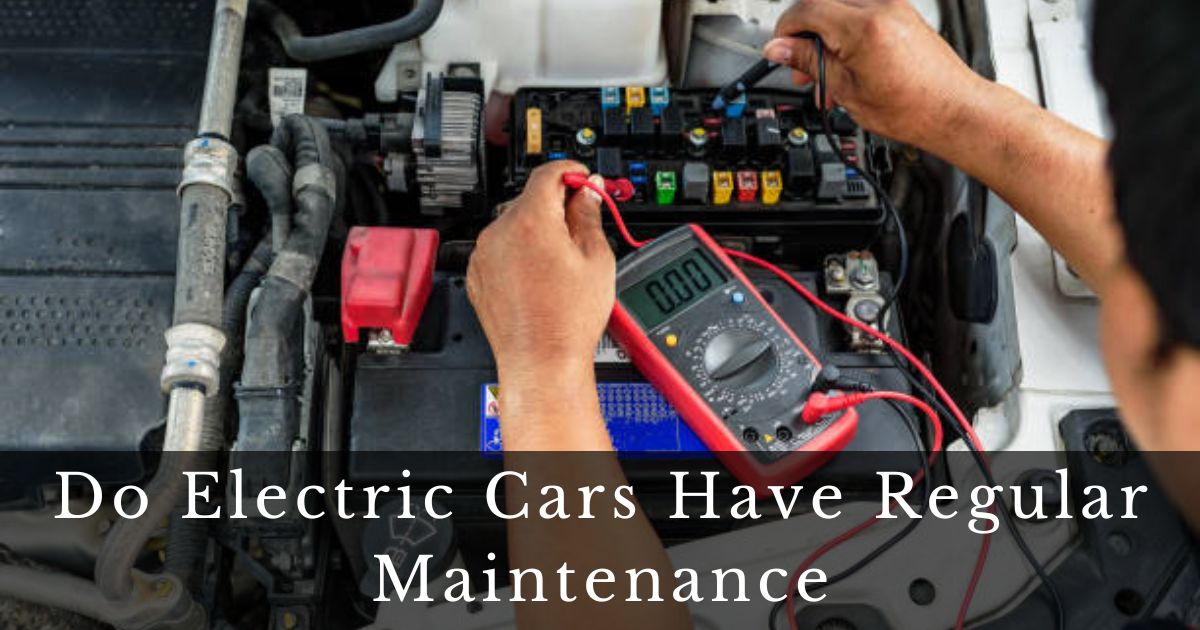Do electric cars have regular maintenance, In the past few years, more people have started to like electric cars because they help the environment and cost less to run than regular cars that use gas. Some people think electric cars don’t need as much fixing as gas cars. But even though electric cars have simpler parts and don’t need as many repairs, they still need some care to work well for a long time.
Electric cars, often hailed for their eco-friendliness and fuel efficiency, indeed require maintenance like any other vehicle on the road. However, the nature of this maintenance differs from that of traditional gasoline-powered cars. Let’s delve into what maintaining an electric car entails.
Maintenance Overview
Electric cars boast fewer moving parts compared to their gasoline counterparts. This characteristic translates to less wear and tear, resulting in reduced maintenance needs over time.
Differences in Maintenance: Electric vs. Gas Cars
Battery Maintenance
The most critical component of an electric car is its battery. While it doesn’t require oil changes like an internal combustion engine, the battery does need occasional attention. Regular checks ensure optimal performance and longevity.
Fewer Moving Parts
Traditional cars rely on a complex system of components, such as spark plugs, belts, and oil filters, all of which require periodic replacement. In contrast, electric cars have fewer moving parts, minimizing the need for frequent repairs and replacements.
Regenerative Braking
Electric vehicles utilize regenerative braking systems, which convert kinetic energy into electrical energy to recharge the battery. This feature reduces wear on traditional brake pads, extending their lifespan and lowering maintenance costs.
Routine Maintenance for Electric Cars
Routine maintenance tasks for electric cars are similar to those for conventional vehicles but may vary in frequency and execution.
Tire Rotation and Alignment
Regular tire rotation and alignment are crucial for ensuring even wear and optimal handling. This maintenance task remains essential for both electric and gas-powered vehicles.
Brake Fluid Checks
Although electric cars experience less brake wear, periodic checks of brake fluid levels and condition are still necessary to maintain safety and performance.
Coolant System Inspection
Electric cars utilize coolant to regulate battery temperature and ensure optimal operation. Regular inspections of the coolant system help prevent overheating and maintain battery efficiency.
Software Updates
Software updates are essential for electric cars, as they often introduce new features and improvements to performance and efficiency. Keeping the vehicle’s software up-to-date ensures optimal functionality and safety.
DIY Maintenance for Electric Cars
Many maintenance tasks for electric cars can be performed by owners with basic mechanical skills and knowledge.
Checking and Topping Up Fluids
While electric cars lack traditional fluids like engine oil, owners should periodically check and top up coolant and windshield washer fluid levels as needed.
Inspecting Brake Pads
Although electric cars experience less brake wear, owners should still inspect brake pads regularly for signs of wear and replace them when necessary.
Cleaning the Exterior and Interior
Regular cleaning and maintenance of the car’s exterior and interior not only keep it looking its but also help preserve its value over time.
Professional Maintenance Services
Certain maintenance tasks are left to professionals with specialized equipment and expertise.
Battery Health Checks
Professional technicians can perform comprehensive battery health checks to ensure optimal performance and longevity.
Motor Inspection
Regular inspections of the electric motor and associated components help identify potential issues early on and prevent costly repairs down the line.
Charging System Evaluation
Professional evaluation of the charging system ensures that the vehicle can charge safely and efficiently, minimizing the risk of damage to the battery or electrical system.
Cost Comparison: Electric vs. Gas Car Maintenance
While electric cars may have lower maintenance costs overall due to fewer moving parts, the initial cost of battery replacement can be significant. However, factors such as government incentives and advancements in battery technology are continually improving the cost-effectiveness of electric vehicle ownership.
In conclusion, electric cars do require regular maintenance, albeit less frequent and complex compared to traditional gasoline-powered vehicles. By understanding the unique maintenance needs of electric cars and staying proactive with routine checks and professional services, owners can ensure their vehicles remain reliable, efficient, and environmentally friendly for years to come.
FAQs
Do electric cars need oil changes like traditional cars?
Electric cars do not require oil changes since they do not have internal combustion engines. However, they still require periodic maintenance of other components like brakes and tires.
How often do electric cars need their batteries replaced?
The lifespan of an electric car battery can vary depending on factors such as usage, climate, and battery technology. On average, modern electric car batteries are designed to last for hundreds of thousands of miles before needing replacement.
Are electric cars more expensive to maintain than gas cars?
While electric cars may have lower maintenance costs overall due to fewer moving parts, the initial cost of battery replacement can be significant. However, factors such as government incentives and advancements in battery technology are continually improving the cost-effectiveness of electric vehicle ownership.
Can I perform maintenance on my electric car myself?
Many maintenance tasks for electric cars can be performed by owners with basic mechanical skills and knowledge. However, certain tasks, such as battery health checks and motor inspections, are left to professionals with specialized equipment and expertise.
How often should I have my electric car serviced?
The frequency of service intervals for electric cars varies depending on the manufacturer’s recommendations and usage patterns. Generally, electric cars require less frequent servicing compared to traditional gasoline-powered vehicles, but it’s essential to follow the manufacturer’s guidelines for optimal performance and longevity.



